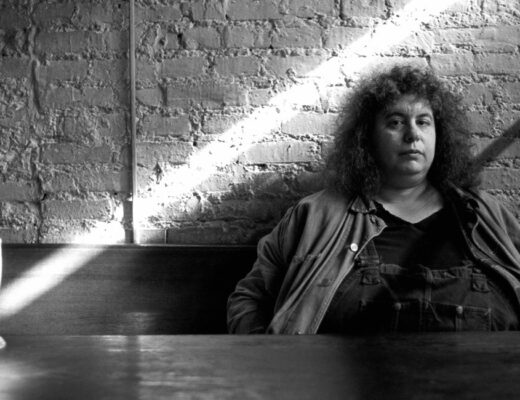Having had its world premiere at last year’s Berlinale, Marco Dutra and Caetano Gotardo’s All the Dead Ones (in Portuguese, Todos os Mortos) has now made its U.S. debut as the opening night selection for Film at Lincoln Center and Cinema Tropical’s Neighboring Scenes festival. Although the Brazilian filmmakers are frequent collaborators (Gotardo edited Dutra’s 2017 feature Good Manners, for one), All the Dead Ones is the first time they’ve shared a directing credit, though they each have distinct bodies of work, spanning film, television, and theater, their careers dating back to the end of the ’90s when they met at film school. In the U.S., Dutra is likely best known for the aforementioned Good Manners (co-directed with Juliana Rojas) which found success at both Locarno and Fantastic Fest, while Gotardo’s films are largely unknown in the U.S. thanks to sporadic distribution (his Your Bones and Your Eyes did play Neighboring Scenes in 2019).
All the Dead Ones reflects the longevity and accomplishments of both Dutra and Gotardo’s artistic endeavors; in perfect sync, the directors have concocted an expansive historical epic of thematic and narrative complexity, gracefully paced and filled with clean, textured compositions. Set in São Paulo, approximately a decade after slavery was abolished in Brazil, All the Dead Ones is a gothic tale that concerns itself with the creeping decay of a once-powerful family of white landowners (a mother, two daughters, and an absentee father), and Iná (Mawusi Tulani), the woman they once enslaved. The latter now raises her son João (Agyei Augusto) on the outskirts of the city while waiting for the return of her husband, who has long been away searching for work. Eventually, Iná finds herself pulled back into the orbit of these former slave owners when they come to her in desperation, offering to pay her to travel to São Paulo and perform a ritual of African origin for the family matriarch, whose declining wealth has plunged her into a deep depression. Unable to turn down the money, Iná agrees, though the arrangement only grows more ominous as she’s reintroduced to the very unwell family, haunted and perverted by their colonialist dependencies.
Dutra and Gotardo approach this material with a certain grandiosity, their movie surely informed by art-house anti-colonialist screeds like those of Marguerite Duras (or more recently Zama and Zombi Child). All the Dead Ones convincingly adopts modernist affectations that are punctured, in the film’s closing minutes, by a rather cute moment that threads the horrors of colonialism and slavery up and through present day. That said, this very operatic rendering of such loaded, violent history often dances too close to camp: the actors play up the bizarre villainy of these warped aristocrats in a way that’s gaudy, which is particularly clear in the film’s closing minutes, when the silliness of a particular performance clashes with the bleak brutality of what is actually done. Still, while All the Dead Ones has its missteps, it’s clear that Dutra and Gotardo didn’t approach this project casually. There are moments when they fail to capture the complexity of the systems and histories they take on, but taken as a whole, the film is a welcome, unequivocal rejection of assimilation and assertion that colonization isn’t just a bad memory, but a present and still-honored tradition.
Published as part of Neighboring Scenes 2021.







